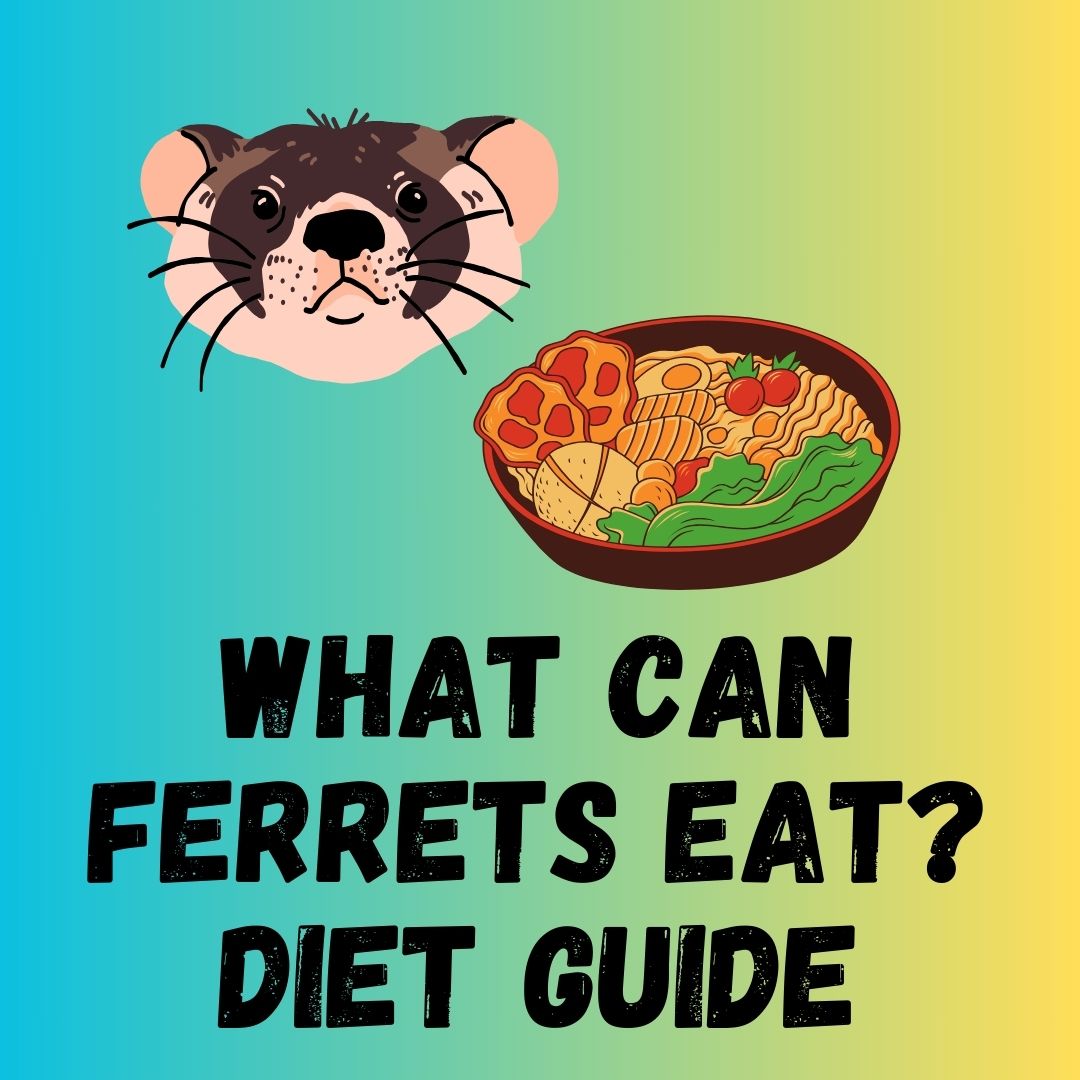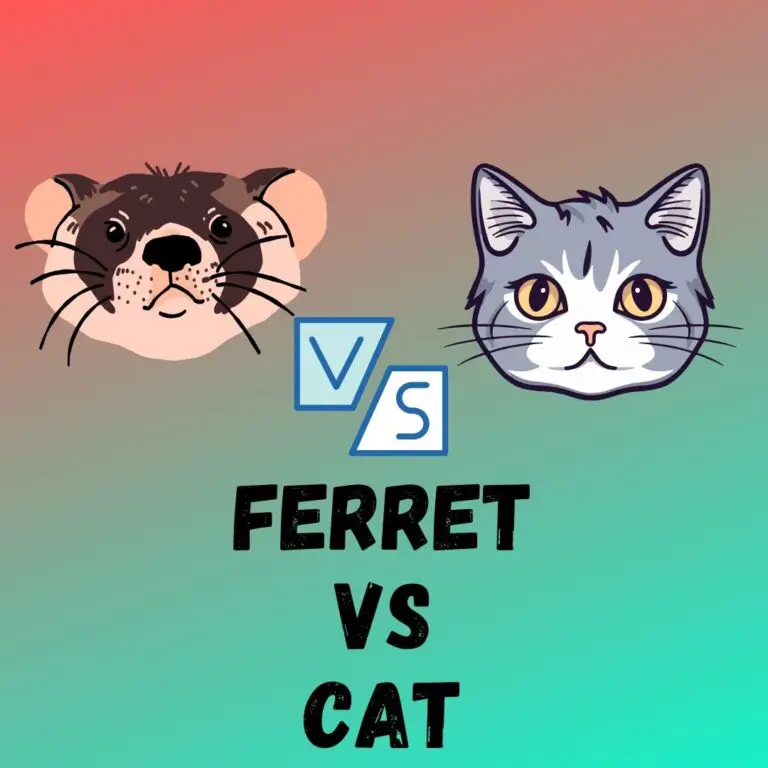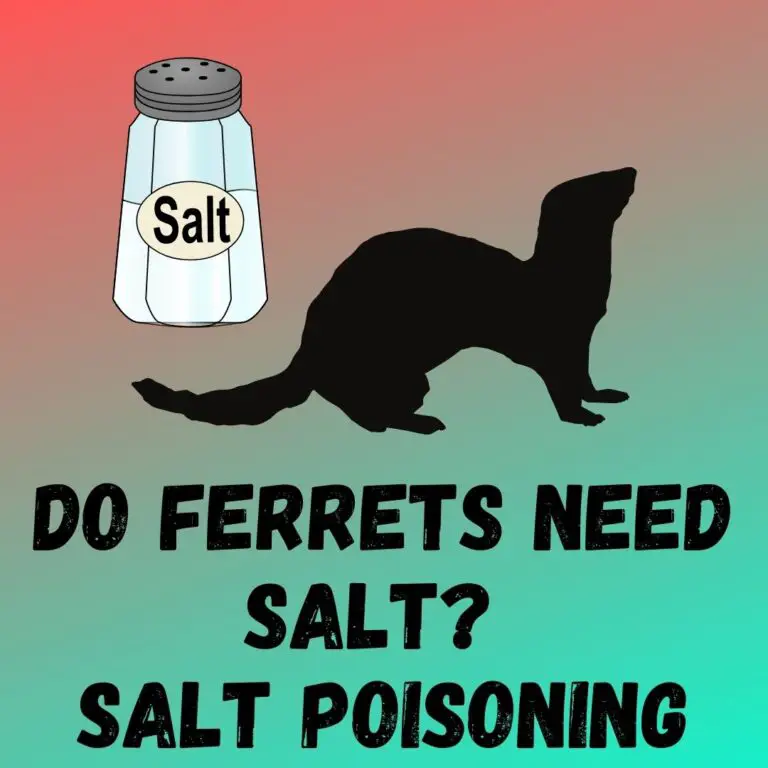
Hey there! As a proud ferret owner, I know how important it is to provide these playful and curious creatures with a diet that keeps them healthy and happy. If you’re wondering what you can feed your ferret, you’ve come to the right place. In this article, I’ll be sharing some valuable insights on what ferrets can eat to ensure they receive the proper nutrition they need.
Ferrets are carnivores by nature, which means their diet should primarily consist of meat-based foods. However, it’s crucial to understand that not all types of meat are suitable for your furry friend. In the following paragraphs, I’ll be diving into the specifics of what types of meat are safe and beneficial for ferrets, as well as some other dietary considerations you should keep in mind.
Key Takeaways
- Proper nutrition is essential for the overall health and well-being of ferrets.
- Ferrets are carnivores and require a diet primarily consisting of animal-based protein and fats.
- Feeding ferrets a balanced and nutritious diet is important for their growth, vitality, and digestive health.
- A well-planned diet strengthens a ferret’s immune system and prevents nutritional deficiencies.
- Commercial ferret food is formulated to meet their specific dietary requirements.
- Raw or cooked chicken, turkey, beef, and lamb are safe and beneficial meat options for ferrets.
Why proper nutrition is important for ferrets
As an expert in ferret care, I cannot stress enough how crucial it is to provide your furry friend with a balanced and nutritious diet. Proper nutrition is vital for the overall health and well-being of ferrets, just like it is for any other animal. Here’s why:
- Growth and Development: Ferrets, as carnivores, require a diet rich in animal protein. This is because protein is essential for their growth and development. Without sufficient protein, ferrets may suffer from stunted growth and other health issues.
- Energy and Vitality: Feeding your ferret a diet that meets their nutritional needs will ensure they have the energy and vitality to enjoy an active and playful life. A proper diet will provide the necessary nutrients to support their daily activities and keep them happy and thriving.
- Digestive Health: Ferrets have a short and delicate digestive system. Feeding them the right food is essential to maintain their digestive health. A diet high in quality protein and low in carbohydrates helps prevent gastrointestinal issues and promotes optimal digestion.
- Strong Immune System: A balanced diet is vital for strengthening a ferret’s immune system. As with humans, when their immune system is robust, ferrets are better equipped to fight off infections, diseases, and other health challenges that they may encounter throughout their lives.
- Prevention of Nutritional Deficiencies: A well-planned diet can prevent nutritional deficiencies, which can lead to a range of health problems. By providing your ferret with a variety of wholesome foods, you can ensure they receive all the essential vitamins, minerals, and nutrients they need for optimum health.
- Longevity: Investing in your ferret’s nutrition can significantly contribute to their longevity. A properly nourished ferret is more likely to live a longer and healthier life, bringing you joy and companionship for years to come.
proper nutrition is of utmost importance for the health and well-being of ferrets. By feeding them a balanced and nutritious diet, you can help them grow, thrive, and enjoy a long and happy life. So, let’s dive into the next section to understand what specific foods are safe and beneficial for our furry friends.
The carnivorous nature of ferrets
Ferrets are carnivorous animals, which means their bodies are designed to thrive on a diet consisting mainly of animal-based proteins and fats. As a responsible pet owner, it’s important to understand the dietary needs of ferrets to ensure their overall health and well-being.
The digestive system of ferrets is specifically designed to process a high protein diet. Their short digestive tract and fast metabolism allow them to efficiently digest and absorb nutrients from animal-based foods. This is why it’s crucial to provide them with a diet that closely resembles their natural diet in the wild.
Feeding your ferret a balanced and nutritious diet is essential for their growth and development, energy and vitality, proper functioning of their digestive system, and a strong immune system. A diet lacking in essential nutrients can lead to health issues such as malnutrition, weakened immune system, and digestive problems.
To meet their nutritional needs, ferrets require a diet that is high in animal-based protein, with at least 32-38% protein content. This can be achieved through feeding them commercial ferret food that is specifically formulated for their dietary requirements. These foods generally contain a combination of high-quality meat ingredients, such as chicken or turkey, as well as other essential nutrients like taurine and fatty acids.
It’s important to note that while ferrets can consume small amounts of certain fruits and vegetables as treats, these should never make up a significant portion of their diet. Unlike humans, ferrets do not have the necessary enzymes to properly digest plant matter. Their digestive system is primarily adapted for meat consumption.
Recognizing the carnivorous nature of ferrets is key to providing them with a diet that meets their nutritional needs. Feeding them a balanced diet rich in animal-based protein is crucial for their overall health and well-being. Keep in mind that commercial ferret food is formulated to meet their specific requirements, and while small amounts of fruits and vegetables can be given as treats, they should not be a significant part of their diet.
Safe and beneficial meat options for ferrets
When it comes to feeding ferrets, it’s important to remember that they are obligate carnivores. This means that their bodies are designed to thrive on a diet consisting mainly of animal-based proteins and fats. Therefore, it’s crucial to provide them with a variety of safe and beneficial meat options to meet their nutritional needs.
- Raw or Cooked Chicken: Chicken is a great source of animal-based protein for ferrets. You can offer lean cuts of raw or cooked chicken, such as boneless chicken breast or thighs. Be sure to remove any skin and bones before feeding it to your ferret.
- Turkey: Turkey is another excellent meat option for ferrets. It’s low in fat and provides essential nutrients like protein. You can offer cooked turkey meat, but again, make sure to remove the skin and bones.
- Beef: Lean cuts of beef can also be included in your ferret’s diet. Beef provides them with protein and other essential nutrients. Cooked ground beef or small, bite-sized pieces of cooked beef can be fed to your ferret.
- Lamb: Lamb is a rich source of protein and can be a good addition to your ferret’s diet. Cooked lamb meat, without any added seasoning or spices, can be safely given to your furry friend.
It’s important to note that while meat is a crucial part of a ferret’s diet, it should be given in moderation. Overfeeding meat can lead to obesity and other health issues. Additionally, make sure to always provide fresh and high-quality meat to ensure the well-being of your ferret.
Remember, consult with a veterinarian before making any significant changes to your ferret’s diet. They can provide you with personalized recommendations based on your ferret’s specific nutritional needs.
Other dietary considerations for ferrets
When it comes to the diet of ferrets, it’s not just about the meat. While animal-based proteins and fats are essential for their well-being, there are additional dietary considerations to keep in mind. Here are a few things to consider when feeding your ferret:
- Fresh Water: Just like any other animal, ferrets need access to fresh water at all times. Make sure to provide clean water in a shallow dish or a water bottle attached to their enclosure. Regularly check and refill the water to keep your ferret hydrated.
- Vitamin and Mineral Supplements: Ferrets have specific nutritional needs, and it’s important to ensure they receive all the essential nutrients. While a balanced diet should provide most of the necessary vitamins and minerals, some additional supplementation may be required. Consult with your veterinarian for recommendations and dosage guidelines.
- Fiber: While ferrets primarily require a meat-based diet, they also need a small amount of fiber for healthy digestion. Include small portions of high-quality cat food or kitten food in their diet to provide the necessary fiber. Avoid foods high in carbohydrates or fillers that may cause digestive issues.
- Treats: Every pet deserves a treat now and then, and ferrets are no exception. However, it’s important to choose treats specifically formulated for ferrets. Avoid sugary or high-carbohydrate treats meant for other animals, as they can be detrimental to a ferret’s health.
- Feeding Frequency: Unlike other animals, ferrets have a high metabolic rate and require frequent feeding. Feed them small meals throughout the day to mimic their natural eating habits. This helps prevent overeating and keeps their energy levels stable.
Remember, each ferret is unique, and their nutritional needs can vary. It’s always best to consult with a veterinarian who specializes in exotic animals for personalized dietary recommendations. By providing a well-rounded diet that meets their nutritional needs, you can ensure that your ferret stays healthy and happy.
Ferret Dietary Considerations Summary Table
| Consideration | Details |
|---|---|
| Fresh Water | Provide clean water at all times. |
| Vitamin and Mineral Supplements | Consult with a veterinarian for recommendations and dosage guidelines. |
| Fiber | Include small portions of high-quality cat or kitten food in their diet. |
| Treats |
Conclusion
Providing a proper diet for your ferret is crucial for their overall health and well-being. As carnivores, ferrets require a diet that is rich in animal-based proteins and fats. Raw or cooked meats such as chicken, turkey, beef, and lamb are excellent options for meeting their nutritional needs. However, it is important to remove any skin and bones before feeding these meats to your ferret. Additionally, it is essential to avoid overfeeding, as this can lead to obesity and other health issues.
Consulting with a veterinarian is key to ensuring that your ferret’s specific nutritional requirements are met. They can provide personalized recommendations and advise on the inclusion of vitamin and mineral supplements, as well as small portions of high-quality cat or kitten food for added fiber. It is also important to choose treats specifically formulated for ferrets.
Remember to provide fresh water at all times and feed your ferret small meals throughout the day to mimic their natural eating habits. By following these guidelines and seeking professional advice, you can ensure that your ferret enjoys a balanced and nutritious diet that supports their overall health and happiness.
Frequently Asked Questions
Q: What type of meat should I feed my ferret?
A: You can feed your ferret raw or cooked chicken, turkey, beef, or lamb. Remember to remove the skin and bones before feeding.
Q: Can I overfeed my ferret?
A: Yes, overfeeding can lead to obesity and other health issues in ferrets. Feed them small meals throughout the day to prevent overeating.
Q: What other dietary considerations should I be aware of?
A: Fresh water should be available at all times. Consider adding vitamin and mineral supplements if necessary. Include small portions of high-quality cat or kitten food for fiber. Choose treats specifically formulated for ferrets.
Q: Why is it important to consult with a veterinarian?
A: A veterinarian can provide personalized recommendations based on your ferret’s specific nutritional needs. They can help ensure your ferret is receiving a balanced diet for optimal health.






